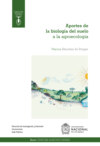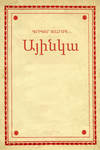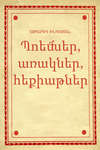Kitabı oku: «Thomas Wingfold, Curate», sayfa 10
CHAPTER XXVII. LEOPOLD’S STORY CONCLUDED
He knew from her letters that they were going to give a ball, at which as many as pleased should be welcome in fancy dresses, and masked if they chose. The night before it he had a dream, under the influence of his familiar no doubt, which made him so miserable and jealous that he longed to see her as a wounded man longs for water, and the thought arose of going down to the ball, not exactly in disguise, for he had no mind to act a part, but masked so that he should not be recognised as uninvited, and should have an opportunity of watching Emmeline, concerning whose engagement with a young cavalry officer there had lately been reports, which, however, before his dream, had caused him less uneasiness than many such preceding. The same moment the thought was a resolve.
I must mention that no one whatever knew the degree of his intimacy with Emmeline, or that he had any ground for considering her engaged to him. Secrecy added much to the zest of Emmeline’s pleasures. Everyone knew that he was a devoted admirer—but therein to be classed with a host.
For concealment, he contented himself with a large travelling-cloak, a tall felt hat, and a black silk mask.
He entered the grounds with an arrival of guests, and knowing the place perfectly, contrived to see something of her behaviour, while he watched for an opportunity of speaking to her alone,—a quest of unlikely success. Hour after hour he watched, and all the time never spoke or was spoken to.
Those who are acquainted with the mode of operation of the drug to which I have referred, are aware that a man may be fully under its influences without betraying to the ordinary observer that he is in a condition differing from that of other men. But, in the living dream wherein he walks, his feeling of time and of space is so enlarged, or perhaps, I rather think, so subdivided to the consciousness, that everything about him seems infinite both in duration and extent; the action of a second has in it a multitudinous gradation of progress, and a line of space is marked out into millionths, of every one of which the consciousness takes note. At the same time his senses are open to every impression from things around him, only they appear to him in a strangely exalted metamorphosis, the reflex of his own mental exaltation either in bliss or torture, while the fancies of a man mingle with the facts thus introduced and modify and are in turn modified by them; whereby out of the chaos arises the mountain of an Earthly Paradise, whose roots are in the depths of hell; and whether the man be with the divine air and the clear rivers and the thousand-hued flowers on the top, or down in the ice-lake with the tears frozen to hard lumps in the hollows of his eyes so that he can no more have even the poor consolation of weeping, is but the turning of a hair, so far at least as his will has to do with it. The least intrusion of anything painful, of any jar that cannot be wrought into the general harmony of the vision, will suddenly alter its character, and from the seventh heaven of speechless bliss the man may fall plumb down into gulfs of horrible and torturing, it may be loathsome imaginings.
Now Leopold had taken a dose of the drug on his journey, and it was later than usual, probably because of the motion, ere it began to take effect. He had indeed ceased to look for any result from it, when all at once, as he stood amongst the laburnums and lilacs of a rather late spring, something seemed to burst in his brain, and that moment he was Endymion waiting for Diana in her interlunar grove, while the music of the spheres made the blossoms of a stately yet flowering forest, tremble all with conscious delight.
Emboldened by his new condition, he drew nigh the house. They were then passing from the ball to the supper-room, and he found the tumult so distasteful to his mood of still ecstasy that he would not have entered had he not remembered that he had in his pocket a note ready if needful to slip into her hand, containing only the words, “Meet me for one long minute at the circle,”—a spot well known to both: he threw his cloak Spanish fashion over his left shoulder, slouched his hat, and entering stood in a shadowy spot she must pass in going to or from the supper-room. There he waited, with the note hid in his hand—a long time, yet not a weary one, such visions of loveliness passed before his entranced gaze. At length SHE also passed—lovely as the Diana whose dress she had copied—not quite so perfectly as she had abjured her manners. She leaned trustingly on the arm of some one, but Leopold never even looked at him. He slid the note into her hand, which hung ungloved as inviting confidences. With an instinct quickened and sharpened tenfold by much practice, her fingers instantly closed upon it, but, not a muscle belonging to any other part of her betrayed the intrusion of a foreign body: I do not believe her heart gave one beat the more to the next minute. She passed graceful on, her swan’s-neck shining; and Leopold hastened out to one of the windows of the ball-room, there to feast his eyes upon her loveliness. But when he caught sight of her whirling in the waltz with the officer of dragoons whose name he had heard coupled with hers, and saw her flash on him the light and power of eyes which were to him the windows of all the heaven he knew, as they swam together in the joy of the rhythm, of the motion, of the music, suddenly the whole frame of the dream wherein he wandered, trembled, shook, fell down into the dreary vaults that underlie all the airy castles that have other foundation than the will of the eternal Builder. With the suddenness of the dark that follows the lightning, the music changed to a dissonant clash of multitudinous cymbals, the resounding clang of brazen doors, and the hundred-toned screams of souls in torture. The same moment, from halls of infinite scope, where the very air was a soft tumult of veiled melodies ever and anon twisted into inextricable knots of harmony—under whose skyey domes he swept upborne by chords of sound throbbing up against great wings mighty as thought yet in their motions as easy and subtle, he found himself lying on the floor of a huge vault, whose black slabs were worn into many hollows by the bare feet of the damned as they went and came between the chambers of their torture opening off upon every side, whence issued all kinds of sickening cries, and mingled with the music to which, with whips of steel, hellish executioners urged the dance whose every motion was an agony. His soul fainted within him, and the vision changed. When he came to himself, he lay on the little plot of grass amongst the lilacs and laburnums where he had asked Emmeline to meet him. Fevered with jealousy and the horrible drug, his mouth was parched like an old purse, and he found himself chewing at the grass to ease its burning and drought. But presently the evil thing resumed its sway and fancies usurped over facts. He thought he was lying in an Indian jungle, close by the cave of a beautiful tigress, which crouched within, waiting the first sting of reviving hunger to devour him. He could hear her breathing as she slept, but he was fascinated, paralyzed, and could not escape, knowing that, even if with mighty effort he succeeded in moving a finger, the motion would suffice to wake her, and she would spring upon him and tear him to pieces. Years upon years passed thus, and he still lay on the grass in the jungle, and still the beautiful tigress slept. But however far apart the knots upon the string of time may lie, they must pass: an angel in white stood over him, his fears vanished, the waving of her wings cooled him, and she was the angel whom he had loved and loved from all eternity, in whom was his ever-and-only rest. She lifted him to his feet, gave him her hand, they walked away, and the tigress was asleep for ever. For miles and miles, as it seemed to his exaltation, they wandered away into the woods, to wander in them for ever, the same violet blue, flashing with roseate stars, for ever looking in through the tree-tops, and the great leafy branches hushing, ever hushing them, as with the voices of child-watching mothers, into peace, whose depth is bliss.
“Have you nothing to say now I am come?” said the angel.
“I have said all. I am at rest,” answered the mortal.
“I am going to be married to Captain Hodges,” said the angel.
And with the word, the forests of heaven vanished, and the halls of Eblis did not take their place:—a worse hell was there—the cold reality of an earth abjured, and a worthless maiden walking by his side. He stood and turned to her. The shock had mastered the drug. They were only in the little wooded hollow, a hundred yards from the house. The blood throbbed in his head as from the piston of an engine. A horrid sound of dance-music was in his ears. Emmeline, his own, stood in her white dress, looking up in his face, with the words just parted from her lips, “I am going to be married to Captain Hodges.” The next moment she threw her arms round his neck, pulled his face to hers, and kissed him, and clung to him.
“Poor Leopold!” she said, and looked in his face with her electric battery at full power; “does it make him miserable, then?—But you know it could not have gone on like this between you and me for ever! It was very dear while it lasted, but it must come to an end.”
Was there a glimmer of real pity and sadness in those wondrous eyes? She laughed—was it a laugh of despair or of exultation?—and hid her face on his bosom. And what was it that awoke in Leopold? Had the drug resumed its power over him? Was it rage at her mockery, or infinite compassion for her despair? Would he slay a demon, or ransom a spirit from hateful bonds? Would he save a woman from disgrace and misery to come? or punish her for the vilest falsehood? Who can tell? for Leopold himself never could. Whatever the feeling was, its own violence erased it from his memory, and left him with a knife in his hand, and Emmeline lying motionless at his feet. It was a knife the Scotch highlanders call a skean-dhu, sharp-pointed as a needle, sharp-edged as a razor, and with one blow of it he had cleft her heart, and she never cried or laughed any more in that body whose charms she had degraded to the vile servitude of her vanity. The next thing he remembered was standing on the edge of the shaft of a deserted coalpit, ready to cast himself down. Whence came the change of resolve, he could not tell, but he threw in his cloak and mask, and fled. The one thought in his miserable brain was his sister. Having murdered one woman, he was fleeing to another for refuge. Helen would save him.
How he had found his way to his haven, he had not an idea. Searching the newspapers, Helen heard that a week had elapsed between the “mysterious murder of a young lady in Yorkshire” and the night on which he came to her window.
CHAPTER XXVIII. SISTERHOOD
“Well, Poldie, after all I would rather be you than she!” cried Helen indignantly, when she had learned the whole story.
It was far from the wisest thing to say, but she meant it, and clasped her brother to her bosom.
Straightway the poor fellow began to search for all that man could utter in excuse, nay in justification, not of himself, but of the woman he had murdered, appropriating all the blame. But Helen had recognised in Emmeline the selfishness which is the essential murderer, nor did it render her more lenient towards her that the same moment, with a start of horror, she caught a transient glimpse of the same in herself. But the discovery wrought in the other direction, and the tenderness she now lavished upon Leopold left all his hopes far behind. Her brother’s sin had broken wide the feebly-flowing springs of her conscience, and she saw that in idleness and ease and drowsiness of soul, she had been forgetting and neglecting even the being she loved best in the universe. In the rushing confluence of love, truth, and indignation, to atone for years of half-love, half-indifference, as the past now appeared to her, she would have spoiled him terribly, heaping on him caresses and assurances that he was far the less guilty and the more injured of the two; but Leopold’s strength was exhausted, and he fell back in a faint.
While she was occupied with his restoration many things passed through her mind. Amongst the rest she saw it would be impossible for her to look after him sufficiently where he was, that the difficulty of feeding him even would be great, that very likely he was on the borders of an illness, when he would require constant attention, that the danger of discovery was great—in short, that some better measures must be taken for his protection and the possibility of her ministrations. If she had but a friend to consult! Ever that thought returned. Alas! she had none on whose counsel or discretion either she could depend. When at length he opened his eyes, she told him she must leave him now, but when it was dark she would come again, and stay with him till dawn. Feebly he assented, seeming but half aware of what she said, and again closed his eyes. While he lay thus, she gained possession of his knife. It left its sheath behind it, and she put it naked in her pocket. As she went from the room, feeling like a mother abandoning her child in a wolf-haunted forest, his eyes followed her to the door with a longing, wild, hungry look, and she felt the look following her still through the wood and across the park and into her chamber, while the knife in her pocket felt like a spellbound demon waiting his chance to work them both a mischief. She locked her door and took it out, and as she put it carefully away, fearful lest any attempt to destroy it might lead to its discovery, she caught sight of her brother’s name engraved in full upon the silver mounting of the handle. “What if he had left it behind him!” she thought with a shudder.
But a reassuring strength had risen in her mind with Leopold’s disclosure. More than once on her way home she caught herself reasoning that the poor boy had not been to blame at all—that he could not help it—that she had deserved nothing less. Her conscience speedily told her that in consenting to such a thought, she herself would be a murderess. Love her brother she must; excuse him she might, for honest excuse is only justice; but to uphold the deed would be to take the part of hell against heaven. Still the murder did not, would not seem so frightful after she had heard the whole tale, and she found it now required far less effort to face her aunt. If she was not the protectress of the innocent, she was of the grievously wronged, and the worst wrong done him was the crime he had been driven to do. She lay down and slept until dinner time, woke refreshed, and sustained her part during the slow meal, heartened by the expectation of seeing her brother again and in circumstance of less anxiety when the friendly darkness had come, and all eyes but theirs were closed. She talked to her aunt and a lady who dined with them as if she had the freest heart in the world; the time passed; the converse waned; the hour arrived; adieus were said; drowsiness came. All the world of Glaston was asleep; the night on her nest was brooding upon the egg of to-morrow; the moon was in darkness; and the wind was blowing upon Helen’s hot forehead, as she slid like a thief across the park.
Her mind was in a tumult of mingled feelings, all gathered about the form of her precious brother. One moment she felt herself ministering to the father she had loved so dearly, in protecting his son; the next the thought of her father had vanished, and all was love for the boy whose memories filled the shadow of her childhood; about whom she had dreamed night after night as he crossed the great sea to come to her; who had crept into her arms timidly, and straightway turned into the daintiest merriest playmate; who had charmed her even in his hot-blooded rages, when he rushed at her with whatever was in his hand at the moment. Then she had laughed and dared him; now she shuddered to remember. Again, and this was the feeling that generally prevailed, she was a vessel overflowing with the mere woman-passion of protection: the wronged, abused, maddened, oppressed, hunted human thing was dependent upon her, and her alone, for any help or safety he was ever to find. Sometimes it was the love of a mother for her sick child; sometimes that of a tigress crouching over her wounded cub and licking its hurts. All was coloured with admiration of his beauty and grace, and mingled with boundless pity for their sad overclouding and defeature! Nor was the sense of wrong to herself in wrong to her own flesh and blood wanting. The sum of all was a passionate devotion of her being to the service of her brother.
I suspect that at root the loves of the noble wife, the great-souled mother, and the true sister, are one. Anyhow, they are all but glints on the ruffled waters of humanity of the one changeless enduring Light.
CHAPTER XXIX. THE SICK-CHAMBER
She had reached the little iron gate, which hung on one hinge only, and was lifting it from the ground to push it open, when sudden through the stillness came a frightful cry. Had they found him already? Was it a life-and-death struggle going on within? For one moment she stood rooted; the next she flew to the door. When she entered the hall, however, the place was silent as a crypt. Could it have been her imagination? Again, curdling her blood with horror, came the tearing cry, a sort of shout of agony. All in the dark, she flew up the stair, calling him by name, fell twice, rose as if on wings, and flew again until she reached the room. There all was silence and darkness. With trembling hands she found her match-box and struck a light, uttering all the time every soothing word she could think of, while her heart quavered in momentary terror of another shriek. It came just as the match flamed up in her fingers, and an answering shriek from her bosom tore its way through her clenched teeth, and she shuddered like one in an ague. There sat her brother on the edge of the bedstead staring before him with fixed eyes and terror-stricken countenance. He had not heard her enter, and saw neither the light nor her who held it. She made haste to light the candle, with mighty effort talking to him still, in gasps and chokings, but in vain; the ghastly face continued unchanged, and the wide-open eyes remained fixed. She seated herself beside him, and threw her arms around him. It was like embracing a marble statue, so moveless, so irresponsive was he. But presently he gave a kind of shudder, the tension of his frame relaxed, and the soul which had been absorbed in its own visions, came forward to its windows, cast from them a fleeting glance, then dropped the curtains.
“Is it you, Helen?” he said, shuddering, as he closed his eyes and laid his head on her shoulder. His breath was like that of a furnace. His skin seemed on fire. She felt his pulse: it was galloping. He was in a fever—brain-fever, probably, and what was she to do? A thought came to her. Yes, it was the only possible thing. She would take him home. There, with the help of the household, she might have a chance of concealing him—a poor one, certainly! but here, how was she even to keep him to the house in his raving fits?
“Poldie, dear!” she said, “you must come with me. I am going to take you to my own room, where I can nurse you properly, and need not leave you. Do you think you could walk as far?”
“Walk! Yes—quite well: why not?”
“I am afraid you are going to be ill, Poldie; but, however ill you may feel, you must promise me to try and make as little noise as you can, and never cry out if you can help it. When I do like this,” she went on, laying her finger on his lips, “you must be silent altogether.”
“I will do whatever you tell me, Helen, if you will only promise not to leave me, and, when they come for me, to give me poison.”
She promised, and made haste to obliterate every sign that the room had been occupied. She then took his arm and led him out. He was very quiet—too quiet and submissive, she thought—seemed sleepy, revived a little when they reached the open air, presently grew terrified, and kept starting and looking about him as they crossed the park, but never spoke a word. By the door in the sunk fence they reached the garden, and were soon in Helen’s chamber, where she left him to get into bed while she went to acquaint her aunt of his presence in the house. Hard and unreasonable, like most human beings, where her prejudices were concerned, she had, like all other women, sympathy with those kinds of suffering which by experience she understood. Mental distress was beyond her, but for the solace of another’s pain she would even have endured a portion herself. When therefore, she heard Helen’s story, how her brother had come to her window, that he was ill with brain-fever, as she thought, and talked wildly, she quite approved of her having put him to bed in her own room, and would have got up to help in nursing him. But Helen persuaded her to have her night’s rest, and begged her to join with her in warning the servants not to mention his presence in the house, on the ground that it might get abroad that he was out of his mind. They were all old and tolerably faithful, and Leopold had been from childhood such a favourite, that she hoped thus to secure their silence.
“But, child, he must have the doctor,” said her aunt.
“Yes, but I will manage him. What a good thing old Mr. Bird is gone! He was such a gossip! We must call in the new doctor, Mr. Faber. I shall see that he understands. He has his practice to make, and will mind what I say.”
“Why, child, you are as cunning as an old witch!” said her aunt. “It is very awkward,” she went on. “What miserable creatures men are—from first to last! Out of one scrape into another from babies to old men! Would you believe it, my dear?—your uncle, one of the best of men, and most exemplary of clergymen—why, I had to put on his stockings for him every day he got up! Not that my services stopped there either, I can tell you! Latterly I wrote more than half his sermons for him. He never would preach the same sermon twice, you see. He made that a point of honour; and the consequence was that at last he had to come to me. His sermons were nothing the losers, I trust, or our congregation either. I used the same commentaries he did, and you would hardly believe how much I enjoyed the work.—Poor dear boy! we must do what we can for him.”
“I will call you if I find it necessary, aunt. I must go to him now, for he cannot bear me out of his sight. Don’t please send for the doctor till I see you again.”
When she got back to her room, to her great relief she found Leopold asleep. The comfort of the bed after his terrible exhaustion and the hardships he had undergone, had combined with the drug under whose influences he had more or less been ever since first he appeared at Helen’s window, and he slept soundly.
But when he woke, he was in a high fever, and Mr. Faber was summoned. He found the state of his patient such that no amount of wild utterance could have surprised him. His brain was burning and his mind all abroad: he tossed from side to side and talked vehemently—but even to Helen unintelligibly.
Mr. Faber had not attended medical classes and walked the hospitals without undergoing the influences of the unbelief prevailing in those regions, where, on the strength of a little knowledge of the human frame, cartloads of puerile ignorance and anile vulgarity, not to mention obscenity, are uttered in the name of truth by men who know nothing whatever of the things that belong to the deeper nature believed in by the devout and simple, and professed also by many who are perhaps yet farther from a knowledge of its affairs than those who thus treat them with contempt. When therefore he came to practise in Glaston, he brought his quota of yeast into the old bottle of that ancient and slumberous town. But as he had to gain for himself a practice, he was prudent enough to make no display of the cherished emptiness of his swept and garnished rooms. I do not mean to blame him. He did not fancy himself the holder of any Mephistophelean commission for the general annihilation of belief like George Bascombe, only one from nature’s bureau of ways and means for the cure of the ailing body—which, indeed, to him, comprised all there was of humanity. He had a cold, hard, business-like manner, which, however admirable on some grounds, destroyed any hope Helen had cherished of finding in him one to whom she might disclose her situation.
He proved himself both wise and skilful, yet it was weeks before Leopold began to mend. By the time the fever left him, he was in such a prostrate condition, that it was very doubtful whether yet he could live, and Helen had had to draw largely even upon her fine stock of health.
Her ministration continued most exhausting. Yet now she thought of her life as she had never thought of it before, namely as a thing of worth. It had grown precious to her since it had become the stay of Leopold’s. Notwithstanding the terrible state of suspense and horror in which she now lived, seeming to herself at times an actual sharer in her brother’s guilt, she would yet occasionally find herself exulting in the thought of being the guardian angel he called her. Now that by his bedside hour plodded after hour in something of sameness and much of weariness, she yet looked back on her past as on the history of a slug.
During all the time she scarcely saw her cousin George, and indeed, she could hardly tell why, shrunk from him. In the cold, bright, shadowless, north-windy day of his presence, there was little consolation to be gathered, and for strength—to face him made a fresh demand upon the little she had. Her physical being had certainly lost. But the countenance which, after a long interval of absence, the curate at length one morning descried in the midst of the congregation, had, along with its pallor and look of hidden and suppressed trouble, gathered the expression of a higher order of existence. Not that she had drawn a single consoling draught from any one of the wells of religion, or now sought the church for the sake of any reminder of something found precious: the great quiet place drew her merely with the offer of its two hours’ restful stillness. The thing which had elevated her was simply the fact that, without any thought, not to say knowledge of him, she had yet been doing the will of the Heart of the world. True she had been but following her instinct, and ministering—not to humanity from an enlarged affection, but only to the one being she best loved in the world—a small merit surely!—yet was it the beginning of the way of God, the lovely way, and therefore the face of the maiden had begun to shine with a light which no splendour of physical health, no consciousness of beauty, however just, could have kindled there.




















